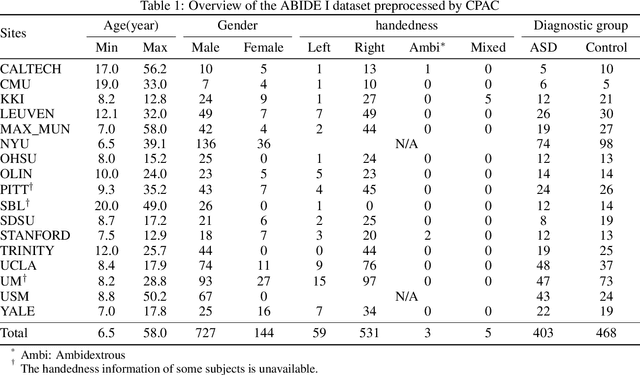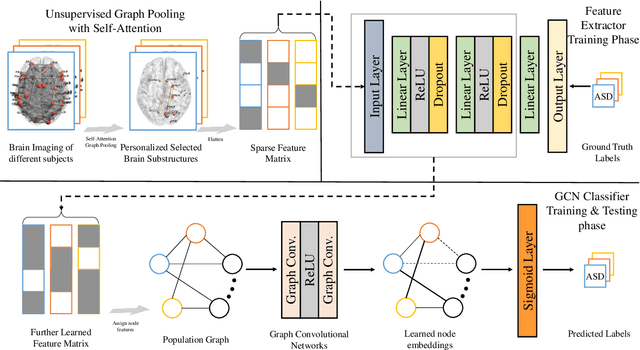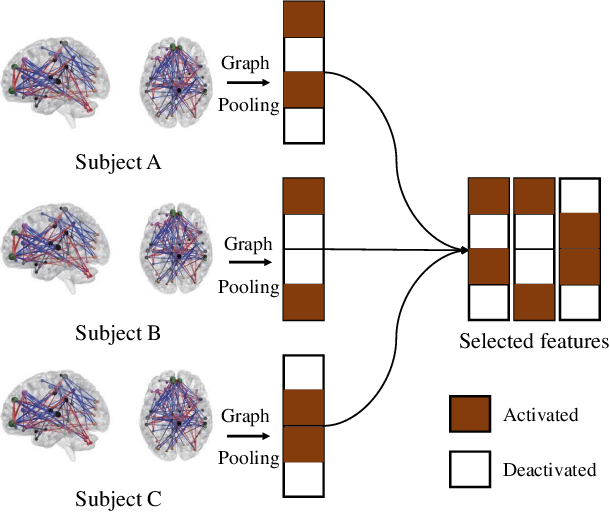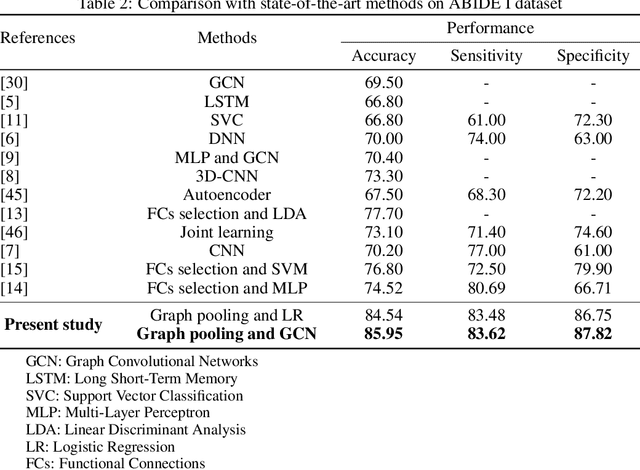Kei Hang Katie Chan
Identifying Autism Spectrum Disorder Based on Individual-Aware Down-Sampling and Multi-Modal Learning
Sep 27, 2021



Abstract:Autism Spectrum Disorder(ASD) is a set of neurodevelopmental conditions that affect patients' social abilities. In recent years, many studies have employed deep learning to diagnose this brain dysfunction through functional MRI (fMRI). However, existing approaches solely focused on the abnormal brain functional connections but ignored the impact of regional activities. Due to this biased prior knowledge, previous diagnosis models suffered from inter-site heterogeneity and inter-individual phenotypic differences. To address this issue, we propose a novel feature extraction method for fMRI that can learn a personalized lower-resolution representation of the entire brain networking regarding both the functional connections and regional activities. Specifically, we abstract the brain imaging as a graph structure and straightforwardly downsample it to sparse substructures by hierarchical graph pooling. The down-scaled feature vectors are embedded into a population graph where the hidden inter-subject heterogeneity and homogeneity are explicitly expressed as inter- and intra-community connectivity differences. Subsequently, we fuse the imaging and non-imaging information by graph convolutional networks (GCN), which recalibrates features to node embeddings under phenotypic statistics. By these means, our framework can extract features directly and efficiently from the entire fMRI and be aware of implicit inter-individual variance. We have evaluated our framework on the ABIDE-I dataset with 10-fold cross-validation. The present model has achieved a mean classification accuracy of 85.95\% and a mean AUC of 0.92, better than the state-of-the-art methods.
 Add to Chrome
Add to Chrome Add to Firefox
Add to Firefox Add to Edge
Add to Edge